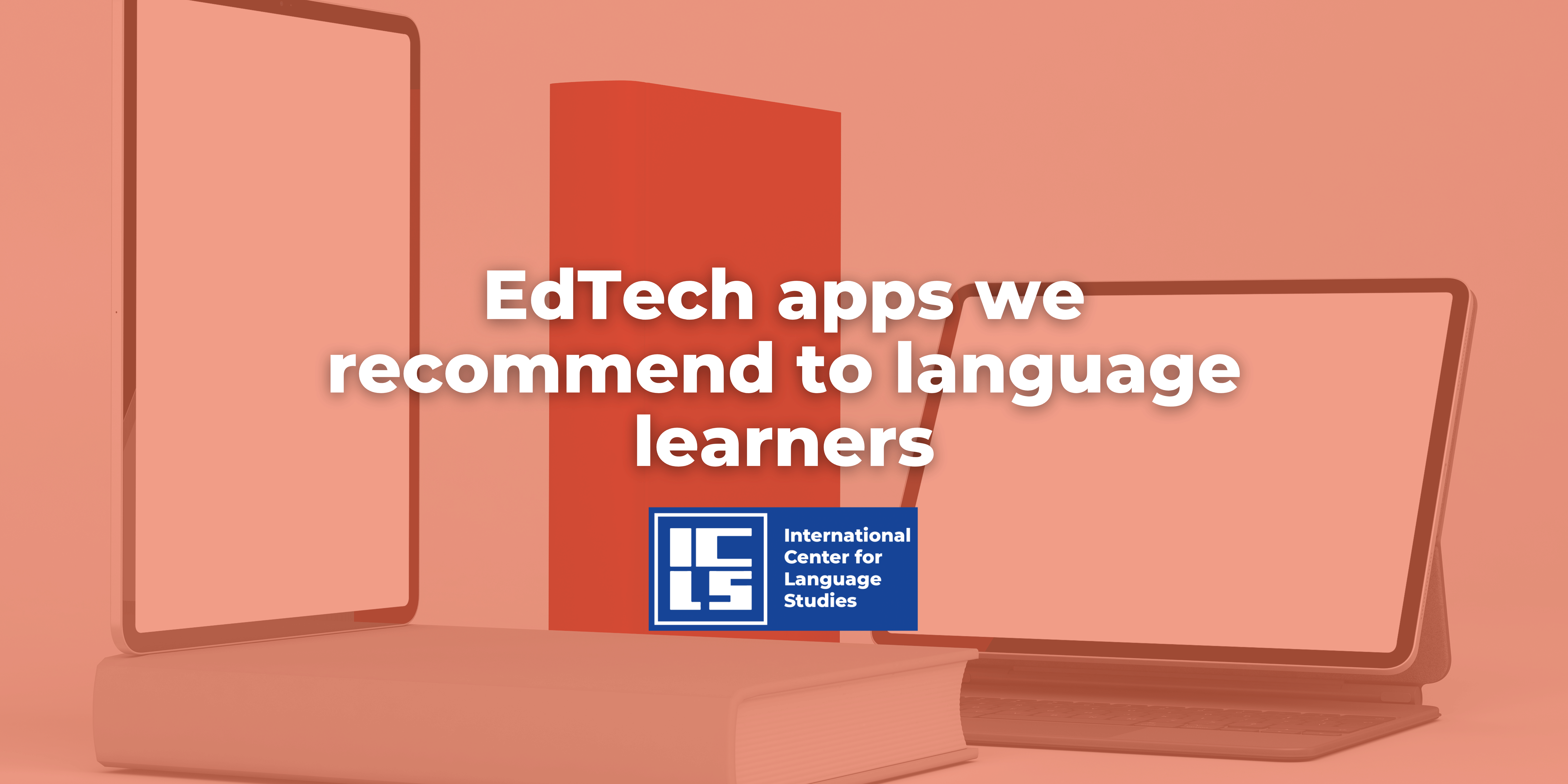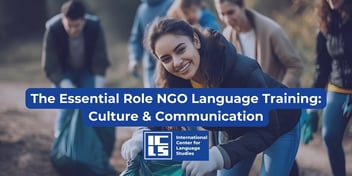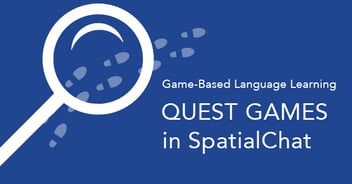EdTech apps we recommend to language learners

At ICLS, we like to help students to help themselves as they set out to learn a new language. So, we’ve drawn up a list of some of the best apps to help learn a language that may be useful as a supplementary aid for students learning any of the 85+ languages we teach.
Not even the best language app is going to teach you a new language as effectively as actual face-to-face learning in school or live online at ICLS. However, there are a number of decent apps that can assist with different learning objectives:
50langauges is one of the best language apps for beginners. For the acquisition of basic vocabulary, grammar and simple phrases, this free app works pretty well. Pronunciation lessons, vocabulary, and memory games such as pairing up pictures to words make 50langauges a simple to use, enjoyable app that offers good supplementary value and doesn’t cost a cent!
Drops is a well-designed language learning app that uses word puzzles and mnemonic association to make it feel like you’re playing a game rather than tackling a chore. Drops is useful for improving vocabulary and offers a wide range of topics to choose from. The quality of sound and pronunciation are good, and the hand drawn images for picture/word matching are appealing on the eye and helpful for the user to memorize vocabulary. Unless you’re willing to pay for the Pro version, language learners can only use the free version for five minutes a day to access content. Keep in mind that Drops only teaches you one verb form, so you’ll have to use other apps to conjugate verbs in your target language. The Pro version of Drops allows users to spend as much time as they like on the app and it’s currently priced at around $10 a month or $70 for an annual subscription.
Duolingo is probably the best-known language learning support app on the market but that doesn’t make it the best. You can either buy the ad free version of the app for around $10 a month, or just go for the free ad supported version. Duolingo has less content than Babbel (see below) and as it relies on volunteer contributors for supplying content, it can, at times turn up some rather curious translations! Duolingo uses listening exercises, flashcards, and multiple-choice questions to help students recall and learn words and phrases. It also includes a handy community feature that enables users to connect with fellow language students.
Babbel is a good app for helping students to embed their learning, getting the user to repeat the same word or phrase over and over again until it becomes fixed in the memory. The constant repetition can frankly become a little boring over time! But Babbel is quite effective at drumming in various useful day to day words and phrases in your target language. Babbel’s interface is quite similar to the Duolingo’s and heavy promotion has made it popular among language students as a supplement to their face-to-face learning either in class or live online at ICLS. The Babbel app contains a lot of content and is a useful aid for beginners and more advanced language students. The app currently costs $6.95 per month or $83 for an annual subscription.
Memrise is essentially a vocabulary app, though some of its features, such as flashcards and listening features, are similar to Duolingo. One of Memrise’s most appealing aspects is ‘Learn With Locals’ that pairs words and phrases with videos of native language speakers, talking. The Pro version, costs $9 per month or $60 if you buy an annual package. If you’re prepared to put up with the adverts, you can download it for free, although users of the free app aren’t able to access all the activity features of the Pro version.
The best language support apps are a useful supplement to face-to-face in-school or live online classes. They can all help in their different ways by improving vocabulary and providing students with useful phrases. However, don’t ever think into that you will learn a new language by using an app alone. You won’t! The best language apps can never replicate or match the specialized, teacher lead, live language courses taught at ICLS. Language apps must always be considered a secondary language resource, as in order to learn a language, it is vital that all four language learning objectives are met: reading, writing, speaking, and listening. Only in the classroom will students fully learn to master these.
Learn more about using teacher tools online (including ChatGPT for language teachers) at our Teacher PD tech workshops.


